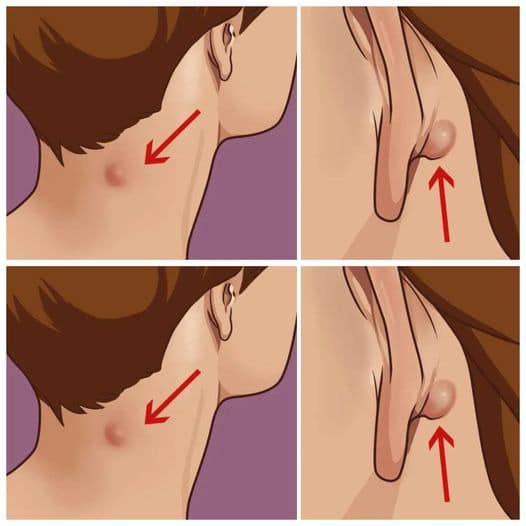Finding a lump or swollen node on your neck, back, or near your ear can be unsettling. Often, people assume the worst, but these lumps, commonly known as lymph nodes, are usually benign. Swollen lymph nodes can occur due to various reasons, such as infections, inflammation, or more serious underlying health conditions. Understanding the potential causes and how to address them can help alleviate concerns and guide you in seeking the right medical advice. In this article, we’ll break down what swollen lymph nodes are, when to worry, and how you can manage the symptoms.
What Are Lymph Nodes?
Lymph nodes are small, bean-shaped structures found throughout your body that play a critical role in your immune system. They act as filters, trapping harmful substances like bacteria, viruses, and cancer cells. You can find them under your jaw, along your neck, behind your ears, in your armpits, and along your spine. Typically, lymph nodes are not noticeable unless they swell due to infection or other factors.

Common Causes of Swollen Nodes:
Infections:
The most common reason for swollen lymph nodes is an infection. When your body fights off infections, your lymph nodes can enlarge. This may happen with viral infections like the flu or a cold, or bacterial infections like strep throat or an ear infection.
Ear Infections:
Ear infections, especially those near the ear canal or middle ear, can lead to swelling in the lymph nodes near the ear, neck, or jaw. These infections can cause pain, fever, and discomfort.
Injuries or Inflammation:
If you have had an injury or inflammation in the area near your neck, back, or ear, the lymph nodes can swell as part of your body’s natural healing process.
Allergic Reactions:
Sometimes, allergic reactions to food, medications, or environmental allergens can cause lymph nodes to swell. These reactions typically go away once the allergen is removed from your body.
Cancers:
In rare cases, swollen lymph nodes can be a sign of lymphoma or metastatic cancer. These are conditions where cancer cells spread to the lymph nodes from other parts of the body.
Other Medical Conditions:
Conditions like autoimmune disorders (e.g., lupus, rheumatoid arthritis) can cause chronic swelling of lymph nodes.
When Should You Worry About Swollen Lymph Nodes?
While swollen lymph nodes are often harmless and go away on their own, it’s important to know when you should seek medical attention. You should consult a doctor if:
The swelling persists for more than 2-3 weeks.
The lumps are hard and not movable under the skin.
You experience fever, night sweats, unexplained weight loss, or fatigue.
The swollen nodes are painful or continue to get bigger.
You have a history of cancer or autoimmune diseases.
These symptoms may indicate a more serious condition that requires medical evaluation.
How to Treat and Manage Swollen Nodes:
Home Remedies for Mild Infections:
Warm Compress: Apply a warm compress to the swollen area to help reduce pain and promote circulation. This can be done a few times a day for 10-15 minutes.
Over-the-Counter Pain Relievers: Non-prescription medications like ibuprofen or acetaminophen can help reduce swelling and relieve discomfort.
Rest and Hydration: If the swelling is due to an infection, getting plenty of rest and staying hydrated will help your body fight off the infection more effectively.
Antibiotics or Antiviral Medications:
Amish Hamburger Steak Bake: A Hearty, Comforting Meal for the Whole Family
Tender and Flavorful Beef Brisket in a Slow Cooker: The Ultimate Comfort Dish
Understanding White Tongue: What It Means for Your Health and How to Treat It Naturally
Why You Should Never Use Cotton Swabs to Clean Your Ears: A Doctor’s Advice
Revive Your Plastic Chairs: Expert Tips for Whitening and Restoring Their Shine


